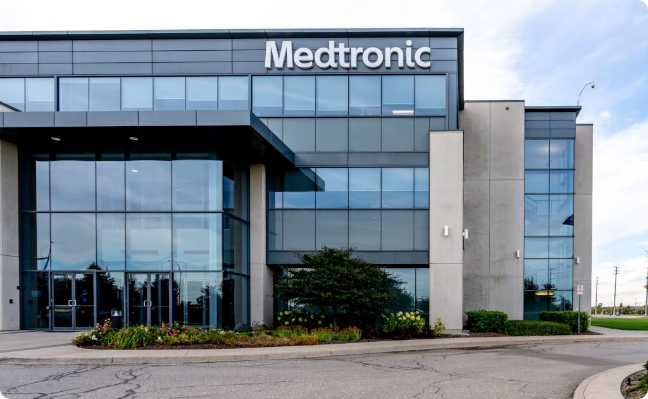Medtronic is a multinational medical technology company specializing in developing and manufacturing various medical devices. The company has been at the forefront of medical technology for over 70 years and has expanded its operations worldwide.
In recent years, Medtronic has started manufacturing in Mexico to take advantage of the country’s lower labor costs and proximity to the U.S. market. This article will discuss how Medtronic began manufacturing in Mexico, how the Mexican providers are contributing to Medtronic’s manufacturing process, any partnership with Mexican companies, and how Medtronic is shipping its products to the U.S.
The decision to start manufacturing in Mexico was a strategic one for Medtronic. The company faced increasing competition and pressure to reduce costs while maintaining high-quality standards. In addition, Mexico’s low labor costs and proximity to the U.S. market made it an attractive location for the company to set up its manufacturing operations. In 2016, Medtronic announced that it would invest $10 million in a new manufacturing facility in Tijuana, Mexico.
Medtronic’s manufacturing model in Mexico involves partnerships with Mexican providers to produce components and sub-assemblies for its medical devices. These providers supply components such as catheter tips, circuit boards, and plastic housings and are also responsible for assembling and packaging the final products. Medtronic also has formed partnerships with Mexican companies to further its manufacturing capabilities and has invested in a new manufacturing facility in Tijuana, Mexico. The company uses a combination of ground transportation and air freight to transport its products from Mexico to the US, and the products are transported in temperature-controlled containers to maintain their integrity during transit. Overall, Medtronic’s manufacturing model in Mexico aims to reduce costs while maintaining high-quality standards and ensuring timely delivery of its medical devices to its customers.
Medtronic has also formed partnerships with Mexican companies to further its manufacturing capabilities. For example, in 2017, the company partnered with the Mexican technology firm, Softtek, to develop and implement new software systems for its manufacturing operations. The partnership aimed to improve Medtronic’s production processes, reduce costs, and increase efficiency.
According to Softtek’s 2021 annual report, 35.1% of the company’s shares are held by American investors. The largest American shareholder is BlackRock, which owns 6.6% of the company’s shares. Other large American shareholders include Vanguard Group, State Street Global Advisors, and Fidelity Investments.
Shipping products from Mexico to the U.S. can be challenging due to regulatory requirements and logistical constraints. However, Medtronic has developed a robust shipping and logistics system to ensure the timely delivery of its products. The company uses a combination of ground transportation and air freight to transport its products from Mexico to the U.S. The products are transported in temperature-controlled containers to maintain their integrity during transit. Medtronic also works closely with customs brokers to ensure all regulatory requirements are met and the products clear customs without delays.
In conclusion, Medtronic’s decision to start manufacturing in Mexico has been a strategic move that has helped the company reduce costs while maintaining high-quality standards. The Mexican providers are contributing significantly to Medtronic’s manufacturing process, and the company has formed partnerships with Mexican companies to further its manufacturing capabilities. In addition, Medtronic’s shipping and logistics system also ensures timely delivery of its products from Mexico to the U.S., demonstrating the company’s commitment to providing high-quality medical devices to its customers.
——————————————————-
Also Made In Mexico: Lifesaving Devices
© 2023 KAISER FAMILY FOUNDATION. ALL RIGHTS RESERVED.
Tijuana, Mexico, has become a global capital of medical devices thanks to the North American Free Trade Agreement (NAFTA), which transformed the city from a gritty party spot to a medical device manufacturing hub. American-owned companies like Medtronic, Hill-Rom, DJO Global, and Greatbatch Medical have invested heavily in Tijuana, constructing factories producing millions of medical devices daily, including intravenous bags, artificial respirators, and pacemaker parts. However, the Trump administration’s threats to redo trade deals and impose steep tariffs on imports, including medical devices, have raised concerns about the potential disruption to the medical devices industry and healthcare in the United States. Currently, the U.S. imports about 30% of its medical devices and supplies, and any changes to trade policies could impact the global supply chain and increase costs for American hospitals. Mexico is the leading supplier of medical devices to the U.S., and Tijuana houses the highest concentration of Mexico’s medical device firms, many of which are American-owned. The possibility of new protectionist trade policies has unsettled the industry and raised questions about the future of medical device manufacturing in Tijuana.

MEDTRONIC Manufacturing Operations in Mexico: Partnerships, Contributions, and Shipping Processes
Medtronic is a multinational medical technology company specializing in developing and manufacturing various medical devices. The company has been at the forefront of medical technology for over 70 years and has expanded its operations worldwide.
In recent years, Medtronic has started manufacturing in Mexico to take advantage of the country’s lower labor costs and proximity to the U.S. market. This article will discuss how Medtronic began manufacturing in Mexico, how the Mexican providers are contributing to Medtronic’s manufacturing process, any partnership with Mexican companies, and how Medtronic is shipping its products to the U.S.
The decision to start manufacturing in Mexico was a strategic one for Medtronic. The company faced increasing competition and pressure to reduce costs while maintaining high-quality standards. In addition, Mexico’s low labor costs and proximity to the U.S. market made it an attractive location for the company to set up its manufacturing operations. In 2016, Medtronic announced that it would invest $10 million in a new manufacturing facility in Tijuana, Mexico.
Medtronic’s manufacturing model in Mexico involves partnerships with Mexican providers to produce components and sub-assemblies for its medical devices. These providers supply components such as catheter tips, circuit boards, and plastic housings and are also responsible for assembling and packaging the final products. Medtronic also has formed partnerships with Mexican companies to further its manufacturing capabilities and has invested in a new manufacturing facility in Tijuana, Mexico. The company uses a combination of ground transportation and air freight to transport its products from Mexico to the US, and the products are transported in temperature-controlled containers to maintain their integrity during transit. Overall, Medtronic’s manufacturing model in Mexico aims to reduce costs while maintaining high-quality standards and ensuring timely delivery of its medical devices to its customers.
Medtronic has also formed partnerships with Mexican companies to further its manufacturing capabilities. For example, in 2017, the company partnered with the Mexican technology firm, Softtek, to develop and implement new software systems for its manufacturing operations. The partnership aimed to improve Medtronic’s production processes, reduce costs, and increase efficiency.
According to Softtek’s 2021 annual report, 35.1% of the company’s shares are held by American investors. The largest American shareholder is BlackRock, which owns 6.6% of the company’s shares. Other large American shareholders include Vanguard Group, State Street Global Advisors, and Fidelity Investments.
Shipping products from Mexico to the U.S. can be challenging due to regulatory requirements and logistical constraints. However, Medtronic has developed a robust shipping and logistics system to ensure the timely delivery of its products. The company uses a combination of ground transportation and air freight to transport its products from Mexico to the U.S. The products are transported in temperature-controlled containers to maintain their integrity during transit. Medtronic also works closely with customs brokers to ensure all regulatory requirements are met and the products clear customs without delays.
In conclusion, Medtronic’s decision to start manufacturing in Mexico has been a strategic move that has helped the company reduce costs while maintaining high-quality standards. The Mexican providers are contributing significantly to Medtronic’s manufacturing process, and the company has formed partnerships with Mexican companies to further its manufacturing capabilities. In addition, Medtronic’s shipping and logistics system also ensures timely delivery of its products from Mexico to the U.S., demonstrating the company’s commitment to providing high-quality medical devices to its customers.
——————————————————-
Also Made In Mexico: Lifesaving Devices
© 2023 KAISER FAMILY FOUNDATION. ALL RIGHTS RESERVED.
Tijuana, Mexico, has become a global capital of medical devices thanks to the North American Free Trade Agreement (NAFTA), which transformed the city from a gritty party spot to a medical device manufacturing hub. American-owned companies like Medtronic, Hill-Rom, DJO Global, and Greatbatch Medical have invested heavily in Tijuana, constructing factories producing millions of medical devices daily, including intravenous bags, artificial respirators, and pacemaker parts. However, the Trump administration’s threats to redo trade deals and impose steep tariffs on imports, including medical devices, have raised concerns about the potential disruption to the medical devices industry and healthcare in the United States. Currently, the U.S. imports about 30% of its medical devices and supplies, and any changes to trade policies could impact the global supply chain and increase costs for American hospitals. Mexico is the leading supplier of medical devices to the U.S., and Tijuana houses the highest concentration of Mexico’s medical device firms, many of which are American-owned. The possibility of new protectionist trade policies has unsettled the industry and raised questions about the future of medical device manufacturing in Tijuana.

